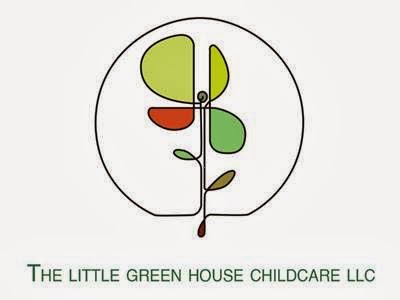I have been a
Certified Educator for 11 years. My specialty has been special education and I
have serviced students from kindergarten up to high school. It has been my joy working with many diverse
children. My experience with children began at home because I am also a mother
to two young men who are, 19, and 17, and a 1-year-old daughter.
 I know, I know
that is just crazy to have such a gap in age but such is life and I love being
a mom. It has always been my life’s
dream to work with children in some capacity. Since I was 5 years old I was
aware that I was meant to help children succeed in life, so I set out to create
a life path that would allow me to do such a thing.
I know, I know
that is just crazy to have such a gap in age but such is life and I love being
a mom. It has always been my life’s
dream to work with children in some capacity. Since I was 5 years old I was
aware that I was meant to help children succeed in life, so I set out to create
a life path that would allow me to do such a thing.
My journey led
me to become an Educator in New Jersey. As an Educator, I have had the pleasure
of working with many different children from various backgrounds. Choosing education has allowed me to work
with, Learning Disabled, At-Risk, General Education and Gifted and Talented
students. In regards to all my diverse experiences, I have noticed with every
type of student that there was often one main struggle that they had in common
and that was, “point of reference”.
Point of reference basically means common background knowledge in order
to understand a concept. Many of my
students regardless of how they were labeled struggled with “point of
reference” at some point in time. I
found this to be a common issue throughout all grades.

How does lack of
“point of reference” affect overall childhood learning as well as have an
impact on children as adults? It should be
understood that around the world there are many different cultures and outlooks
on life. In America we have a melting pot of cultures and understandings. In
our country life should be, “as a American as apple pie” right? But what if you didn’t know that apple pie was
considered a part of American tradition?
Would that assimilate you or ex-communicate you from being perceived as
American?

Many of our
children have issues relating to concepts based on how they perceive ideas or
situations. As an educator and as parents it is our job to bridge the gap in
order to help students relate in a common way using a point of reference. Several people believe that this informal yet
formal education begins in pre-school or kindergarten, however it is my belief
that it begins in infancy. Nevertheless
I am here to tell you that there is something called, “childhood imprinting”
that takes place as soon as your child is born. Childhood imprinting, is
basically the result of environmental conditioning in which children learn from
adult behaviors and lessons taught to them.
So parents whether you realize it or not, that little baby is taking in
everything you say and do and it will become apart of their point of reference
informally.

Okay so now you
are wondering, what does “point of reference” and “childhood imprinting” have
in common when it comes to my baby? You might even ask; how does that impact my
child later in life when they are in school? Children who are exposed to
various cultures, languages, and experiences are often more prone to have a
wider “point of reference” than children who are more localized in their
experiences. Which means the more you know the more you grow the easier it will
be for your child to comprehend the changing diverse world around him or her.
So now what? Mom
and Dad you have a baby or a toddler at home how do you increase their point of
reference when you work during the day and they are in daycare? Well you create
the kind of home environment that allows for your child to have meaningful and
rich experiences. In addition to at home influences, you look for that daycare
to have diverse learning programs and enriched learning environments so your
child is exposed to the ever-changing global community. It is important to me
that children have exposure to various cultures in order to increase their
“points of reference”.

Wrap this up;
this article is way too long! So WHAT’S THE POINT? Ultimately childhood imprinting takes place
during the ages of 0-3 years old. Providing your child with exposure to a wide
range of cultural and global experiences increases their point of reference and
relationships with others. This will increase their understanding of
information presented in schools, and may possibly affect in a positive way
their academics as a result. Your child will be able to communicate
more diversely with other children and adults in the world we live in.
Increased positive communication increases their outlook on self-image and the
way they are perceived by others.
In the end, our
babies represent us in the future. We want what is best for them, so I say as a
mother of three and an educator that you should look for the best daycare that
provides a rich learning environment perfect for great relationships in the
future and that’s my POINT!
By, N.Harvey, Ed.M
Owner of THE
LITTLE GREEN HOUSE CHILDCARE LLC













